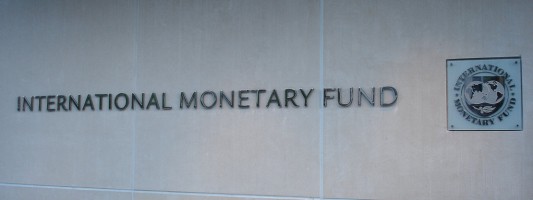An IMF discussion paper titled “Regulation and Supervision of Islamic Banks”, questions the conventional post financial crisis thinking of Islamic banks being more stable than conventional banks. The paper concludes Islamic banks are just as exposed to risks as conventional banks and due to Sharia’h compliance face specific risks unique to their sector. The report details the com... »
IMF Working Paper – Published December 2014 Monetary and Capital Markets Department Regulation and Supervision of Islamic Banks Prepared by Alejandro López Mejía, Suliman Aljabrin, Rachid Awad, Mohamed Norat, and Inwon Song Download: IMF – Regulation and Supervision of Islamic Banks Most computers will open PDF documents automatically, but you may need Adobe Reader »
Indonesia’s Islamic bond market is the second largest in emerging East Asia in terms of size. However, the pace of growth of its sukuk market pales in comparison to the robust growth of its conventional bond market. The Indonesian sukuk market is still in a nascent stage of development and accounts for only 7.4% of the total bond market. The outstanding stock of Indonesia’s sukuk market reached US... »
Islamic Finance has only made substantial advances within the last decade. The Islamic banking industry, in particular, has been growing at a sustained rate, despite being at a nascent stage. Total Islamic banking assets are expected to increase to USD1.7tln in end-2014, having recorded a Compounded Annual Growth Rate (CAGR) of 14.1% between 2009 and 2014. The largest Islamic banking markets are i... »
Sukuk has certain implicit features that makes them different from Riba securities. The most clear difference between them is in what owning them means. In the case of sukuk, investors own part of the capital and receive benefits from increases in its value. The types of capital backing sukuk may include property leasing, industrial projects, commercial projects, or other types of investments. The... »
Sukuk, the plural form of the word sakk, refers to an investment certificate that is deemed to be compliant with Islamic financing principles. In the past, sukuk were used to facilitate trade transactions among merchants by serving as promissory notes. Historical records show that these notes were widely traded and exchanged. Contemporary sukuk are used to raise funds for investments in a manner c... »
Since 1990, the Islamic capital market has developed rapidly across the globe, from South-East Asia to the GCC region and to Europe, becoming a truly international market for fundraising activities. This strong growth has been driven by the increase in the earnings of oil exporting countries resulting from a rise in global oil prices. Participating institutions include multilateral organisations, ... »




